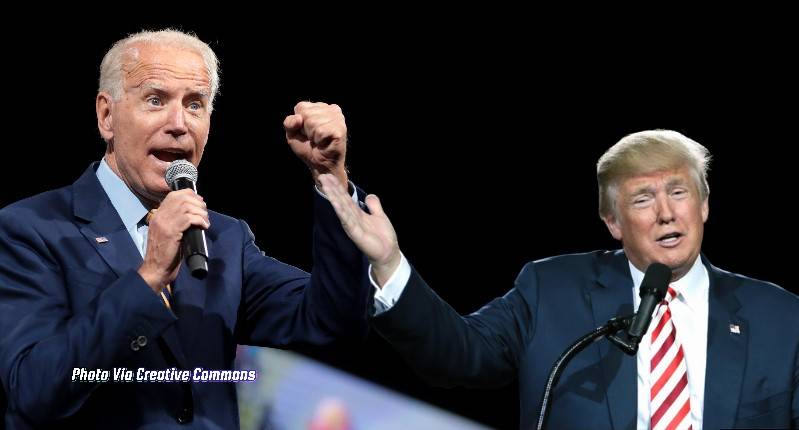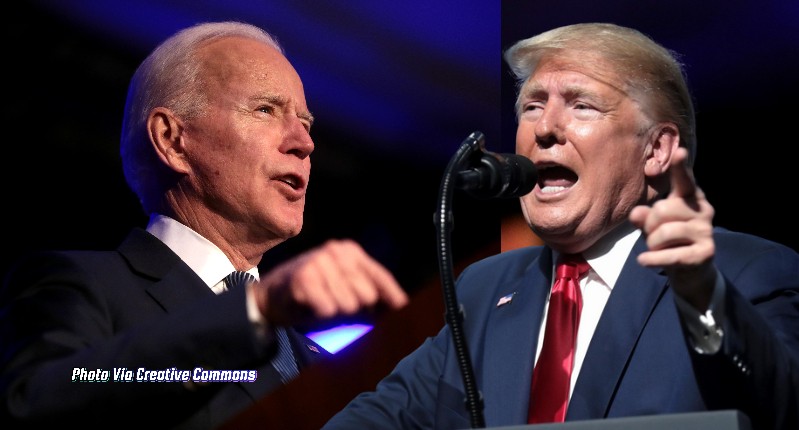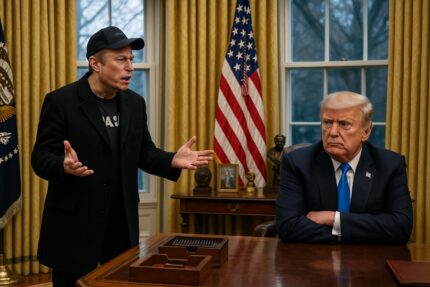Presidential Debate Challenge: Joe Biden and Donald Trump are edging closer to a firm agreement to engage in two pivotal presidential debates. The decision, announced by both camps, signifies a crucial juncture in the ongoing electoral saga as the contenders prepare to spar on national television. Scheduled for June and September, these debates hold the promise of influencing the trajectory of the White House race.
The first debate, slated for June 27th, will be hosted by CNN in the battleground state of Georgia. Notably, the absence of a live audience underscores the unprecedented nature of this early debate, signaling the candidates’ eagerness to engage in direct discourse. Moderated by esteemed hosts Jake Tapper and Dana Bash, the event is poised to set the tone for the ensuing electoral discourse.
RFK’s Quest for Inclusion Amidst Presidential Debate Challenge
Amidst the backdrop of Biden and Donald Trump‘s agreement, Robert F Kennedy Jr, an independent candidate, has emerged as a vocal advocate for inclusion in the presidential debates. Kennedy, positioning himself as a contender beyond the bipartisan fray, initially accused the major candidates of collusion to exclude him from the electoral dialogue. However, in a dramatic turn of events, Kennedy revealed his intent to meet the qualifying criteria for the CNN debate, signaling his unwavering determination to participate in the democratic process.
Trump and Biden: Dueling Rhetoric Setting Terms for Presidential Debate Challenge
As the stage is set for the impending debates, both Donald Trump and Joe Biden have wasted no time in engaging in verbal sparring, not only on the debate stage but also across social media platforms. Trump’s acceptance of the proposed debate dates was swiftly followed by a suggestion to expand the debate schedule, advocating for more opportunities for the electorate to engage with the candidates directly. In contrast, Biden’s campaign emphasized the agreed-upon terms for two one-on-one debates, highlighting a divergence in strategic approaches.
The exchange of jabs between the contenders underscores the high stakes of the upcoming Presidential Debate Challenge, with each candidate seeking to assert dominance in the realm of public opinion. With the nation’s eyes turned toward the televised showdowns, the debates promise to be a pivotal moment in shaping the course of the 2024 presidential race.
Biden’s Unconventional Presidential Debate Challenge
President Biden’s unconventional proposal for two debates marks a significant departure from established norms, signaling a break from tradition in the realm of presidential debates. By sidestepping the presidential debate commission and advocating for alterations to the format, Biden’s team is charting a new course for political discourse in the United States. This article explores the key ways in which Biden’s proposal disrupts long-standing practices and the ensuing debate surrounding these changes.

Presidential Debate Challenge: Break with Commission Tradition
Biden’s decision to bypass the presidential debate commission, responsible for scheduling and organizing debates since 1988, is a departure from established protocol. Traditionally, the commission sets timings, dates, and locations for debates in the autumn, with three televised clashes being the norm. However, Biden’s team’s insistence on only two debates challenges this tradition, highlighting a shift in the dynamics of the electoral process. This move not only underscores the growing influence of individual candidates but also raises questions about the future role of the debate commission in shaping presidential contests.
Furthermore, the proposal to conduct debates without a live audience represents a significant departure from past practices. While raucous partisan crowds have been a staple of previous debates, Biden’s team argues that eliminating the live audience will foster more substantive discussions. Kate Bedingfield, White House communications director, emphasized the importance of creating an environment conducive to productive debates, free from the influence of cheering or jeering crowds. This move reflects a deliberate effort to prioritize the quality of discourse over theatrics, signaling a departure from the spectacle-driven nature of traditional debates.
Format Modifications and Trump’s Response
In addition to eschewing the traditional debate commission, Biden’s team has proposed modifications to the debate format, further diverging from established norms. Under this plan, candidates would take turns answering questions from a moderator chosen from a major news network, with the non-speaking candidate’s microphone being deactivated to prevent interruptions. This approach aims to mitigate the chaos that marred previous debates, where frequent interruptions and cross-talk hindered substantive dialogue.
However, former President Trump has pushed back against these proposed changes, advocating for large audiences and longer debate durations. Trump contends that the presence of a live audience adds excitement to the debates, dismissing concerns about potential disruptions. Moreover, he has called for debates to last two hours, with candidates required to stand for the duration—a departure from the more flexible formats advocated by Biden’s team. Trump’s resistance to these changes underscores the ongoing debate over the role of spectacle and showmanship in presidential debates, highlighting divergent visions for the future of political discourse.
President Biden’s proposal for two debates signals a break from tradition in the realm of presidential politics. By challenging the authority of the debate commission, advocating for format modifications, and prioritizing substantive discourse over spectacle, Biden’s team is redefining the parameters of political debate in the United States. However, resistance from former President Trump underscores the ongoing tension between tradition and innovation in shaping the electoral process. As the debate over debate formats continues, the outcome will undoubtedly shape the future of presidential contests for years to come.
Early Presidential Debate Challenge: Biden’s Strategic Move
The proposal to move the presidential debates earlier in the campaign calendar reflects Joe Biden’s strategic maneuvering to mitigate the impact of televised clashes on the election outcome. By scheduling debates before both the Republican and Democratic national conventions, Biden aims to afford himself and his opponent more time to recover from any potential missteps. This strategic shift draws from the experiences of past incumbent presidents, who have sometimes stumbled in their initial debates before recuperating in subsequent encounters.
A June debate would precede the conventions, while a September debate would allow ample time before Election Day, catering to the timeline when many Americans begin tuning into the campaign. Biden’s proposal also includes a July vice-presidential debate, strategically timed after the Republican convention. These adjustments aim to maximize viewership and impact while minimizing the risk of debates overshadowing critical campaign moments.
The significance of televised debates in shaping public opinion cannot be overstated, with millions of Americans tuning in to witness the clash of ideas and personalities. Biden’s proactive approach to debate scheduling underscores his campaign’s strategic foresight in navigating the electoral landscape.
The Dynamics of Presidential Debate Challenge in Election Year
The dynamics of presidential debates in an election year are shaped by a multitude of factors, including candidate strategies, media coverage, and public engagement. In the case of Joe Biden, who faced minimal opposition within his party during the primaries, the absence of intra-party debates contrasts starkly with the Republican side, where President Trump declined to participate in primary debates.
The proposal for early debates underscores the evolving strategies of modern presidential campaigns in adapting to changing media landscapes and voter behaviors. By seizing the initiative in debate scheduling, Biden aims to maintain control over the narrative and mitigate potential risks while maximizing opportunities to connect with voters.
As the election season unfolds, the role of debates in shaping voter perceptions and influencing electoral outcomes will remain a focal point of analysis and speculation. The proposed changes to debate timing reflect the evolving dynamics of American politics and the strategic imperatives of presidential campaigns in an increasingly complex media environment.














